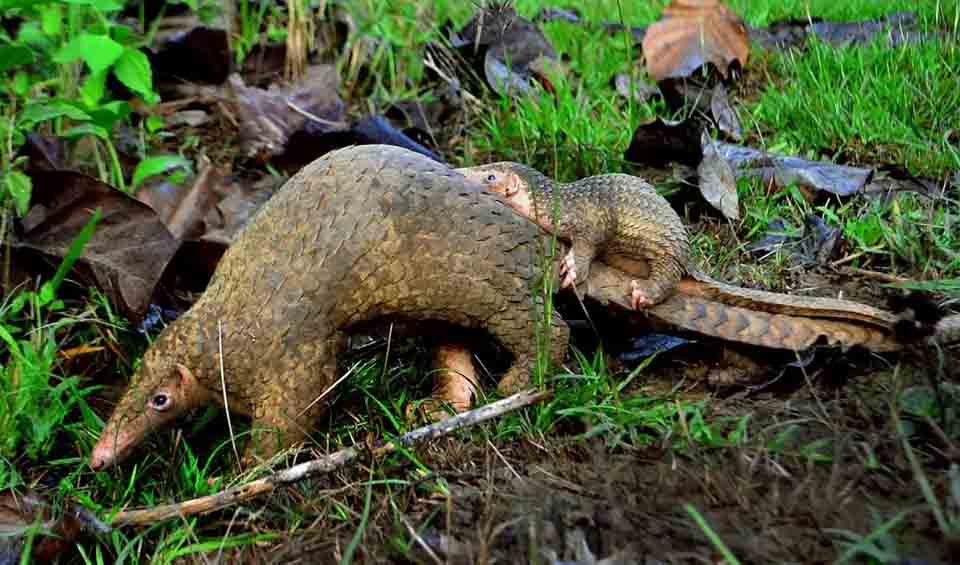These remarkable creatures are famous for their armor-clad appearance, which resembles walking pinecones. Their entire bodies are covered in overlapping, keratinous scales that serve as a formidable defense mechanism against potential predators. This unique armor is one of their most striking features and is incredibly effective in keeping them safe from harm.
Specialization is another key aspect that makes ground pangolins exceptional. They have a highly specialized diet, primarily consisting of ants and termites. To procure their meals, ground pangolins employ a truly extraordinary tool – their remarkably long, sticky tongues. With these tongues, they can quickly and efficiently slurp up their insect prey, showcasing impressive precision in their feeding habits.
Ground pangolins are primarily nocturnal creatures, which means they are most active during the night. Under the cover of darkness, they emerge from their burrows in search of food. Their keen sense of smell aids them in locating insects hidden beneath the ground. This nocturnal lifestyle helps them avoid daytime predators while maximizing their chances of a successful hunt.
One of the most fascinating aspects of ground pangolins is their ability to curl into a ball when threatened. This defensive mechanism transforms them into an impenetrable fortress, and even formidable predators like lions and hyenas find it challenging to breach their protective armor. It’s a remarkable adaptation that showcases the pangolin’s survival instincts.
Distribution
 Angola
Angola Botswana
Botswana Burundi
Burundi Central Af. Rep.
Central Af. Rep. Chad
Chad DR Congo (Kinshasa)
DR Congo (Kinshasa) Eswatini
Eswatini Ethiopia
Ethiopia Kenya
Kenya Malawi
Malawi Mozambique
Mozambique Namibia
Namibia Rwanda
Rwanda South Africa
South Africa South Sudan
South Sudan Sudan
Sudan Tanzania
Tanzania Uganda
Uganda Zambia
Zambia Zimbabwe
ZimbabweRecent Updates
Dec 2023: Nigerian authorities recently incinerated seized pangolin scales worth approximately $1.4 million in Abuja. With the exception of the white-bellied pangolin, pangolins are nearly extinct in Nigeria. These seizures highlight Nigeria’s role as a transit hub for trafficking syndicates.
Anything we've missed?
Help us improve this page by suggesting edits. Glory never dies!
Suggest an editGet to know me
Terrestrial / Aquatic
Altricial / Precocial
Polygamous / Monogamous
Dimorphic (size) / Monomorphic
Active: Diurnal / Nocturnal
Social behavior: Solitary / Pack / Herd
Diet: Carnivore / Herbivore / Omnivore / Piscivorous / Insectivore
Migratory: Yes / No
Domesticated: Yes / No
Dangerous: Yes / No




